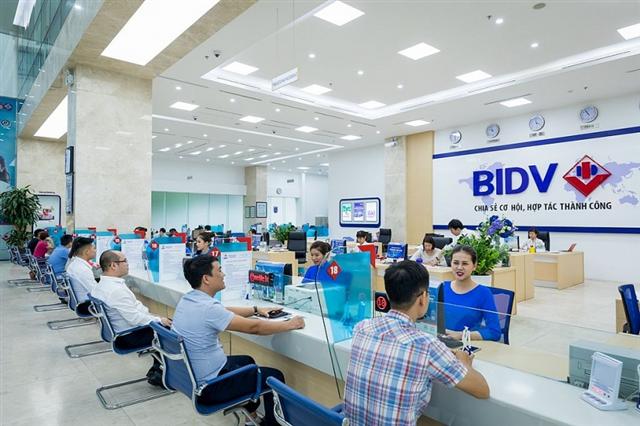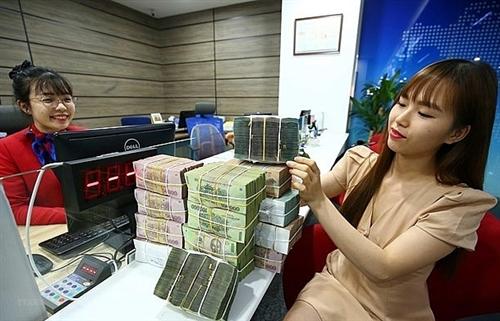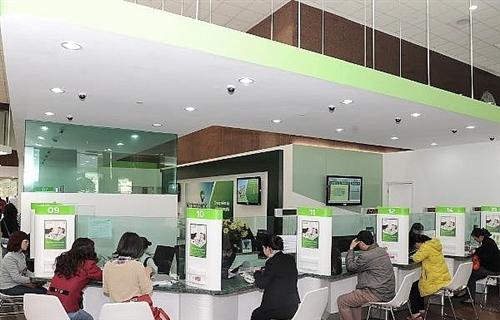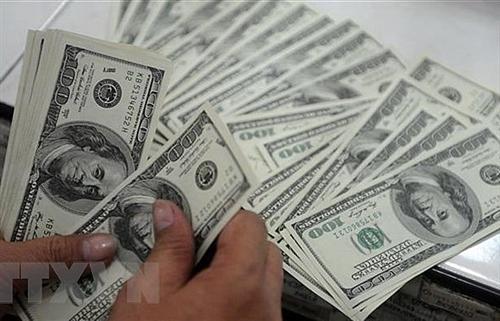BIDV uncertain prospect despite historic deal with KEB Hana Bank
BIDV uncertain prospect despite historic deal with KEB Hana Bank
BIDV’s overvalued stocks will likely do more harm than good for the lender’s plans to lure funding in the face of pessimistic economic growth, despite last year’s historic deal with South Korea’s KEB Hana Bank.
Earlier this month, BIDV – one of four state-owned commercial lenders in Vietnam – held its annual meeting to discuss last year’s results and future plans.
BIDV’s board of management aims to grow the bank’s pre-tax profit by around 16 per cent to reach VND12.5 trillion ($543.5 million) by the end of 2020. At first, the bank targeted credit growth of 13 per cent on-year, but its initial credit growth quota from the State Bank of Vietnam (SBV) is only 9 per cent.
The annual meeting revealed that the bank is expected to pay a 7 per cent stock dividend in the third or fourth quarter of this year, roughly equivalent to 281.5 million shares. The bank, with its optimistic outlook, plans to issue an additional 341.5 million new shares in 2020-2021 via public or private placement, equivalent to 8.5 per cent of the outstanding shares at the end of 2019.
Last year, BIDV has successfully completed the sale of 603.3 million shares, equal to 15 per cent of BIDV’s post-deal capital, via a private placement to KEB Hana Bank.

BIDV is looking to increase uncertain prospect despite historic deal with KEB Hana Bank
|
The strategic co-operation between the bank and the South Korean lender officially inked last year makes BIDV the lender with the largest market capitalisation in Vietnam, outpacing its state-run peers VietinBank, Vietcombank, and Agribank. The deal has also improved BIDV’s balance sheet and previously weak capital adequacy, and allows it to meet Basel II minimum capital requirements, which should support credit growth going forward.
However, it is still too soon to say if BIDV has the Midas touch, as the current economic climate is becoming increasingly uncertain.
The SBV has set the loan growth target for the banking sector at 14 per cent – the same as in 2019. The domestic banking sector recorded credit growth of 13.5 per cent on-year in 2019, dropping to a five-year low.
According to experts at Yuanta Securities, the valuation of BIDV’s stocks remains sky-high, potentially rendering it unattractive to both local and foreign investors.
“These stocks are expensive compared to the sector’s median valuation,” noted Yuanta research analyst Tanh Tran. “Last year’s catalyst – the KEB Hana Bank deal – is history and enough is enough. BIDV’s shares have become overvalued and we can no longer justify a positive recommendation,” said Tran.
As economic growth plateaus out, investors are becoming more selective about where they put their money. They have understandably turned from bank stocks, partially due to SBV’s announcement that credit growth for the first two months of the year stood at a meagre 0.1 per cent on-year as a result of the widespread outbreak.
Nguyen Thi Thuy Linh, analyst at SSI Securities, said, “BIDV will likely witness a 15 per cent decline this year due to a pessimistic outlook resulting from the COVD-19 pandemic.”
Back in 2015, BIDV acquired distressed local lender Mekong Housing Bank (MHB). Consequently, the deal took BIDV more time than expected to facilitate loan resolutions and preserve financial stability.
Another issue of concern is that BIDV’s shares enjoyed a significant rise of 28.4 per cent since last November, which also spurred short-term traders to sell stocks to generate cash profits. This movement would bring about hefty trading costs and unpredictable risks due to the volatile nature of the field.
The global COVID-19 pandemic, at its worst, presents downside risk for all banks in terms of net interest margin, loan growth, and credit quality as domestic lenders like BIDV provide extra support for cash-strapped businesses.
Overseas, lower rates from other central banks and a collapse in oil prices are keeping investors away from the finance and banking sector and Vietnam is not the exception, as lower interest rates limit what banks can earn on loans.
|
Market capitalisation |
$8.1 billion |
|
Six-month average daily turnover |
$1.8 million |
|
Outstanding shares |
4.02 billion |
|
Free float |
19 per cent |
|
Foreign Institutional Investor (FINI) ownership |
18 per cent |
|
Major shareholders |
96 per cent |
|
Assets/Equity (x) |
21.0 |
|
2020 estimated Price-to-earnings (P/E) |
22.6 |
|
2020 estimated Price-to-book (P/B) |
2.3 |
|
Remaining room for foreign ownership |
12 per cent |
|
2020 estimated dividend yield |
2.0 per cent |






















